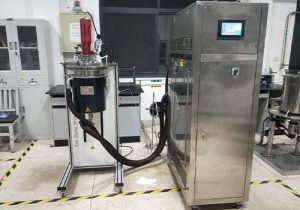air cooled chillers australia
Air Cooled Chillers in Australia: Technology and Applications
Air cooled chillers play a vital role in Australia’s industrial and commercial sectors by providing precise temperature control for processes and environments. These chillers are preferred for their ease of installation and minimal water consumption, making them a sustainable choice for the region’s unique climate and environmental concerns.

Technology Behind Air Cooled Chillers
Air cooled chillers operate on the basic refrigeration cycle, which includes an evaporator, compressor, condenser, and expansion valve. Unlike water-cooled chillers, air cooled chillers dissipate heat through a condenser coil that is directly exposed to the ambient air. Fans aid in the heat transfer process by blowing air over the condenser coils, expelling the heated air into the atmosphere.
Types and Features of Air Cooled Chillers in Australia
The air cooled chillers available in Australia come in various types, including:
Packaged Chillers: These are self-contained units that include the compressor, condenser, and evaporator in a single cabinet. They are easy to install and require minimal maintenance.
Screw Chillers: Known for their high efficiency and reliability, screw chillers are used in applications with high-power circulation requirements.
Centrifugal Chillers: These high-capacity chillers are used for large-scale cooling requirements, typically in the HVAC industry.

Modular Chillers: Designed for flexibility, modular chillers can be combined to meet specific cooling capacities and can be easily expanded as needed.
Applications of Air Cooled Chillers in Australia
Air cooled chillers find applications across various industries in Australia:
Commercial Buildings: They provide essential cooling for offices, hotels, shopping malls, and hospitals, where compact design and ease of installation are beneficial.
Industrial Processes: Industries such as manufacturing, food processing, and pharmaceuticals rely on air cooled chillers for process cooling and temperature control.
Data Centers: Air cooled chillers ensure the reliable operation of servers and equipment by maintaining optimal temperatures.
HVAC Systems: They serve as central cooling units for large buildings, providing chilled water for air conditioning.
Market Trends and Growth Factors in Australia
The air cooled chiller market in Australia is influenced by several trends and factors:
Energy Efficiency: There is a growing demand for energy-efficient chiller systems that reduce operational costs and minimize environmental impact.
Environmental Regulations: Stringent energy efficiency standards and regulations on refrigerants are driving the market towards more sustainable and eco-friendly chiller solutions.

Technological Advancements: The integration of advanced technologies such as IoT capabilities, sensors, and predictive maintenance features enhances system efficiency and reduces downtime.
Infrastructure Development: Rapid urbanization and infrastructure development across Australia are leading to increased construction of commercial buildings, manufacturing facilities, and data centers, which in turn drives the demand for chillers.
Key Players in the Australian Air Cooled Chiller Market
Several established players dominate the Australian air cooled chiller market, offering a wide range of systems and services. Some of the leading companies include KR Chillers Australia, Heuch Cooling Solutions, and Mitsubishi Electric. These companies are engaged in expansion through mergers & acquisitions and joint ventures, offering innovative products that cater to the diverse needs of the market.
Conclusion
The air cooled chiller market in Australia is a dynamic and growing sector, driven by the need for energy-efficient and environmentally friendly cooling solutions. With advancements in technology and increasing environmental concerns, the market is expected to continue its growth trajectory. Key players in the market are focusing on innovation and sustainability to meet the evolving demands of the industry. As the market matures, the focus will likely shift towards more intelligent and efficient chiller systems, ensuring optimal performance and minimal environmental impact.
Related recommendations
chiller 1000 ltr
701Understanding Chiller Capacity in Liters The term "1000 ltr" in the context of chillers does not refer to the physical volume but rather to the cooling capacity of the chiller. A 1000 ltr chill...
View detailsElectroplating Oxidation Chiller
1762Electroplating Oxidation Chiller If the temperature of the electrolyte is out of control during electroplating oxidation, the quality of electroplating will be poor, and it will seriously ca...
View detailschiller 50 kw
505Chiller 50 kW: A Complete GuideA 50 kW chiller is a versatile and efficient cooling system designed for medium-scale applications, offering reliable temperature control for a variety of industries...
View details20 ton air cooled chiller
81620 Ton Air-Cooled Chiller: Efficiency and Reliability in Industrial Cooling Air-cooled chiller systems are essential in industries where precise temperature control is required. A 20-ton air-co...
View details
 LNEYA Chiller
LNEYA Chiller






HelloPlease log in